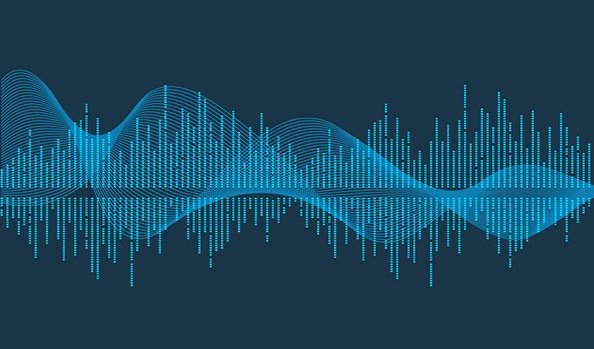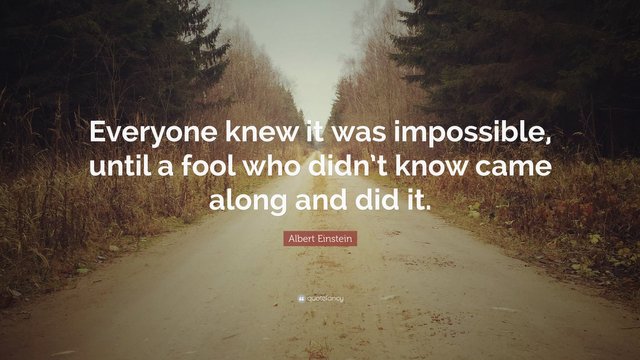
In the music industry, the amount of originality and quality is directly correlated with the amount of success. That's why it is in your interest to have both. Though this is easier said than done. Between words and the actual success, there are lots of hours, days, weeks, months of work and persevering attitude and many crucial choices to make as well to keep on finding your way and going in the right direction (according to what you're trying to find; your musical footprint in a way, to all those of you who, like me, are willing to bring something new to the history of music). I'm going to talk about this aspect in the article: the amount of work and the choices you have to make to organize yourself the best way with this single goal in mind.
CREATIVITY

Originality means creativity. It's obvious. Yet many people tend to forget that. They tend to try following the footsteps of their idols. But what they forget is this clear fact: if you try to copy something that has already been done, chances are, you'll always get a "discount version" of it. It will never be better than the original, because of the fact you're not trying to bring something new, as simple as that. Now you can still get inspired by whatever you want; but you should add something new to it, or change the notes, chords, slightly to fit your own style. This technique has proven to be efficient for many artists. Still this kind of practice shouldn't make you overlook the importance of finding your own chords and melodies at a time.
Chords and melodies are important, but the sounds generated to produce them are at least as important as that. You have to explore all the possibilities offered to you in any type of DAW you're using: VSTs that make you explore different types of soundbanks, presets, samples, your own samples as well, and plugins that can change the shape of the sounds you use in a different way. Combining all these elements will ultimately make you find your own sound before you use that for your melodies and chords (the 2 most important elements of an electronic music track). As an example, I have this video showing the "making of" process of "One" from Swedish House Mafia. You can see how they struggled to find their own type of sound and melody as well for this particular track. It gives you an interesting insight into what the real work should be all about.
Another example linked with that process comes to my mind: the Beatles used some "reverse tape effect" back in the 60s (1967 more precisely). This happened when they were looking for new ideas and John Lennon decided to hear what happened if he put the magnetic tape where they recorded their track in reverse. Maybe it didn't exactly happen like that, but you see the main idea behind this: always look for new possibilities, broaden your path and mind.
One last and famous example that also comes to my mind is linked with Daft Punk: during one of their venues, they had problems with their audio interface, some wire was making a weird noise. Instead of trying to fix it, they played with that noise to include it inside the track they were playing: pure genius idea.
MAKING THE RIGHT CHOICES AND FOLLOWING THEM
Never stop following your own path. This is one of the biggest truths in the music industry. Your path should always represent the most important aspect of your work or you'll stick in limbo before realizing it, where you're not efficient at all and lose your efficiency, with too much negative energy accumulating. I have another video that illustrates this aspect of the work well (Swedish House Mafia again, not only because they represent a model for me as progressive house music, but also because they took many videos of their struggles so many aspects of that producing work are illustrated in their movie):
You can see that is even more underlined when you work in a group of people: managing to find coordination between all the team members. It can often be chaotic if the energy drops down and no one cares anymore. That's where the importance of deadlines comes.
SETTING YOURSELF GOALS, DEADLINES

You have to set yourself reasonable goals, at any stage of your progress, and this is even more important at the start, when you're discovering all the tools. You can set 1 day for sound shaping and finding the right types of sounds, 1 day to master all the aspects of the DAW (at the start). Then it will become 1 day to work on the chords, 1 day on the melody, 3 hours on finding the right instrument or VST, 2 hours on coordinating the beats with the whole melody as well, 1 day or 1 week to define the key times of the track and put it all together, depending on the remaining amount of work. All these aspects are things I will enumerate in the next article. What you have to keep in mind is to stay coherent because it's all about coherence and quality in this industry. And never forget why you were there for at the start (passion, changing the history of music, it could be anything).
This article was mainly written to show the amount of space the "pure aspect of sound" occupies in this music work, but I also spoke about some other aspects directly linked with it. It's totally logical the sound in itself shouldn't be overlooked because it's the main component of any track, I keep saying it because people tend to forget about it, especially if you want to have your own identity (in that case, playing with as many types of sounds as you can is crucial).
Keep on learning until you make it ! Even then you shouldn't stop.
